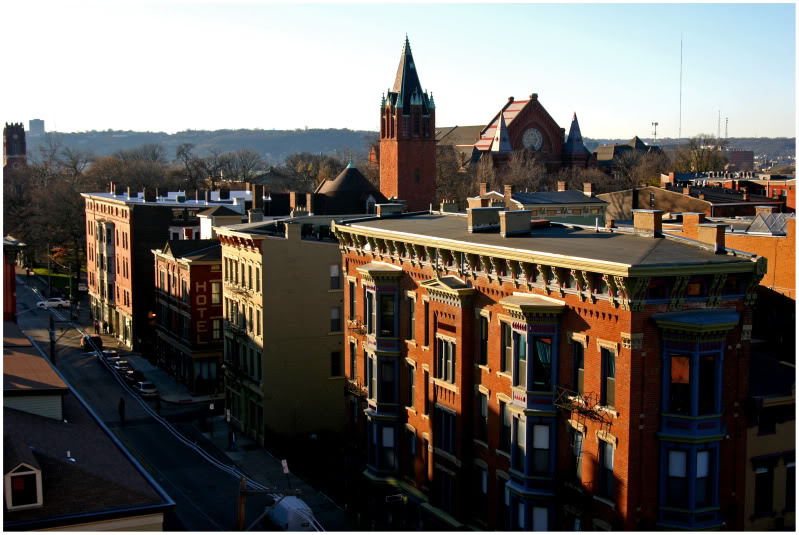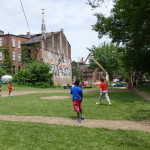Each year the Over-the-Rhine Chamber of Commerce recognizes outstanding individuals and businesses within the neighborhood at their annual Star Awards event. This year’s event will take place at The Transept on Wednesday, March 16 at 4pm, and will feature Harvey Lewis as the keynote speaker.
Last year, Jai Washington was honored with the Individual Contribution of the Year award for her years of involvement in the neighborhood.
Washington told UrbanCincy that she was pleasantly surprised to receive the award last year, but says she has long been in love with Over-the-Rhine for a variety of reasons.
“I was nominated by good friend and coworker at the Peasley Neighborhood Center,” she said. “I believe it stems from two things – I have been involved with community most of my career, but I have also become more involved and present at the chamber as their community outreach liaison. They were able to see in real-time what I’m involved with in the community.”
Her engagement, however, extends far beyond her current roles at the Over-the-Rhine Chamber of Commerce and the Peasley Neighborhood Center. Over the years Washington has worked or volunteered at Inktank, Elementz, Future Leaders OTR, ArtsWave, Black Family Reunion Festival, Cincy Cinco, and even at Fox19 for some time as a citizen reporter.
While being firmly connected with Over-the-Rhine, Washington says that she actually first became connected with the neighborhood while living in Wyoming and commuting to OTR for work at Iris Book Café on Main Street. After that, in 2009, she started Cincinnati Conscience – a radio show on Media Bridges – which is what many people still know her for today.
“This provided me a fertile ground to meet people,” Washington explained. “I would interview people in the neighborhood who were trying to make a difference.”
Of course, such a rooted history in Over-the-Rhine means that Washington has seen the neighborhood change over time. That change, she says, has brought both good and bad particulars with it; and it is her hope, in her next endeavor, to help raise the level of conversation and discourse about what is happening in the neighborhood.
“I think the changes are beautiful and bittersweet. OTR, in its rawness in the 80s and late 70s, had this bad rap of being an island of misfit toys, but it was also a place of refuge for me early on in life. I found it difficult to find my place in the city, but OTR was this place where I was welcome, and it didn’t matter my race, gender, or sexual orientation. History, necessity, and location brought us all together.”
This shared story, as Washington explains it, is defined by the city and neighborhoods in which we work and live. These physical and cultural experiences, regardless of who you are or where you come from, are things that can tie people together.
“I want to be a facilitator of our shared story,” Washington explained. “Political correctness has done us a disservice in that we’ve lost shared stories; and I want to provide the opportunity to people to share these stories in a very professional way.”
One such way she might go about doing this is through guided walks. By engaging people in such activities, Washington believes people can connect in a very raw manner while also connecting with the city’s past.
“I want the world to know that the misfits matter. They are still here holding the place for those coming here now,” Washington concluded. “We have gone from a place for the misfit toys, to Disneyland; and I’m not sure I will be able to afford to live here much longer.”
“The middle is being whittled away; and I’m saddened by that because I’ve invested so much in this community.”
Many efforts are being made to maintain Over-the-Rhine as a diverse and inclusive place, but as the pace of development gains more speed, it will become more important than ever for city leaders to determine priorities and craft policies in a way to make sure OTR doesn’t lose one of its stars.
We will find out who will be this year’s individual stand-out next month.

